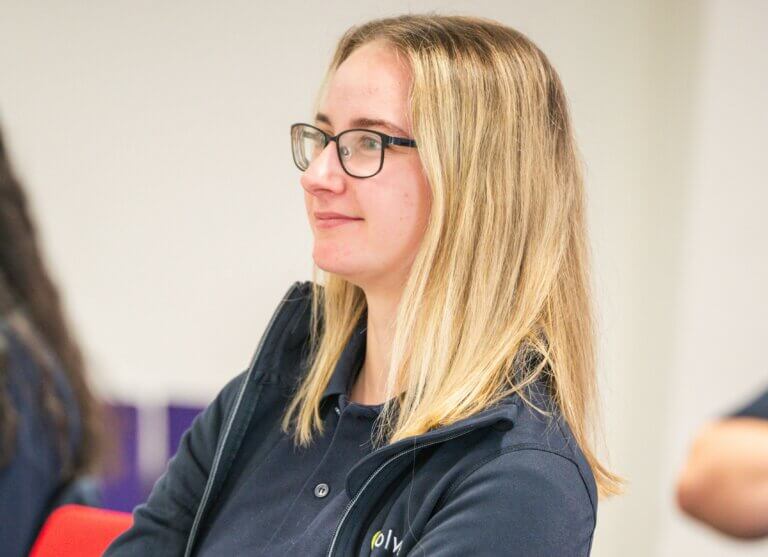Experience a day full of exciting interactions, challenging tasks, collaborative activities and reflection through-the-lens of our Health Mentors in the series called “A Day in the Life of a Health Mentor.” In the first of the series, Hollie Padfield, working at Ninian Park Primary School in Cardiff, shares a day that is filled with planning and setup, mentoring and emotion coaching , sports and games and concludes with a reflection about the impact of the Health Mentor role on her mentees.
The Beginning of the Journey
As a health mentor in a primary school, my days are anything but typical. I support children in understanding and managing their emotions, helping them make positive choices, and helping them build resilience.
Everyday is a chance to make a difference in a child’s life, and in this series, I’ll be sharing a behind-the-scenes look at my work – from early morning preparations to guiding students through emotional challenges. Stay tuned to follow along!
Morning – Setting up for success
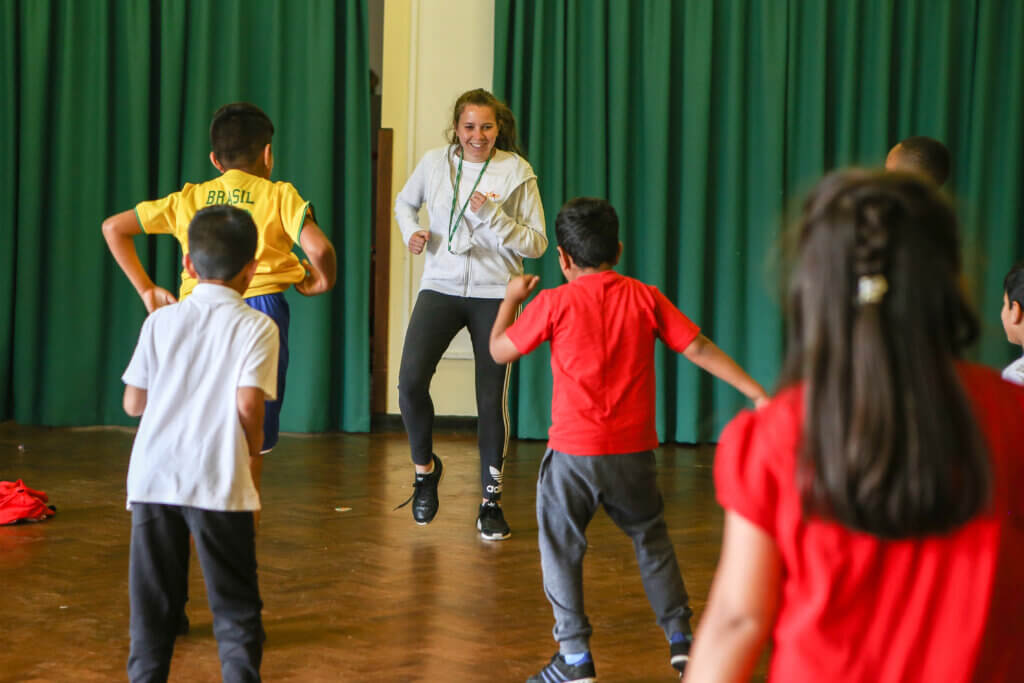
The first part of my day is all about setting the right tone. Before students arrive, I review what we’ve been working on and plan any group activities or one-to-one sessions. I also meet with key members of staff to discuss any specific challenges or areas where certain students might need extra support. Starting the day with a clear focus helps me be ready for whatever challenges might arise.
One of my favourite ways to kick off the day with the children is by leading a Wake & Shake session – a fun, high-energy activity designed to boost their mood, improve focus, and get their brains ready to learn. This quick, active break not only energizes the children, but it also helps them release any pent-up energy and settle into a positive mindset for the rest of the day. It’s amazing how a few minutes of movement can have such a big impact on behaviour and cognitive function!
Mentoring students to build emotional resilience
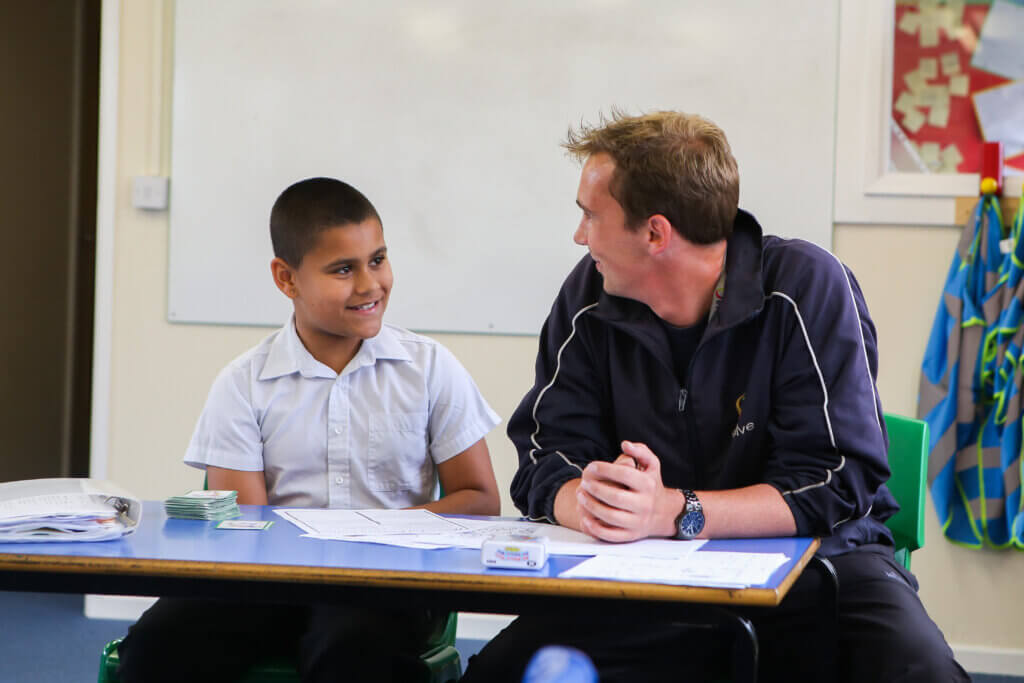
By mid-morning, I’m deep into working with students. Today, I am leading one-to-one sessions on how to regulate emotions during stressful situations.
We practice deep breathing, mindfulness, and positive self-talk. The best part? Watching the students start to use these techniques on their own when they feel upset or angry.
It’s amazing to see them grow emotionally and develop these skills that will help them both in school and in life.
Fostering sportsmanship and teamwork at playground animation
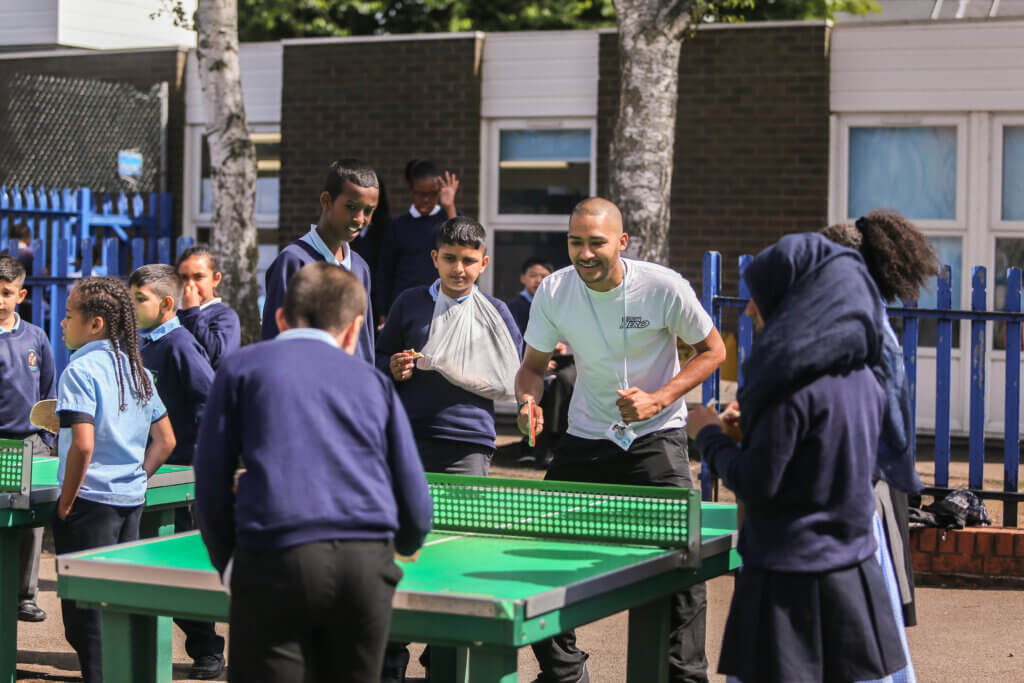
Lunchtime on the playground is a key part of the day where students can interact in a less structured setting. To support positive play and reduce conflicts during this time, I lead lunchtime activities focused on collaboration, teamwork and communication.
From group games to team challenges, these activities are designed to encourage students to work together, solve problems, and have fun in a way that promotes healthy social interactions. It’s incredible to see how these activities help build stronger bonds between the children and reduce conflicts during unstructured play. By providing a sense of structure and purpose, students are more engaged and less likely to fall into negative behaviours.
These moments are also a great way for me to observe children in a social context, giving me insight into how they’re applying emotional regulation and conflict-resolution skills in real-life situations.
Sensory circuits for students with ASD
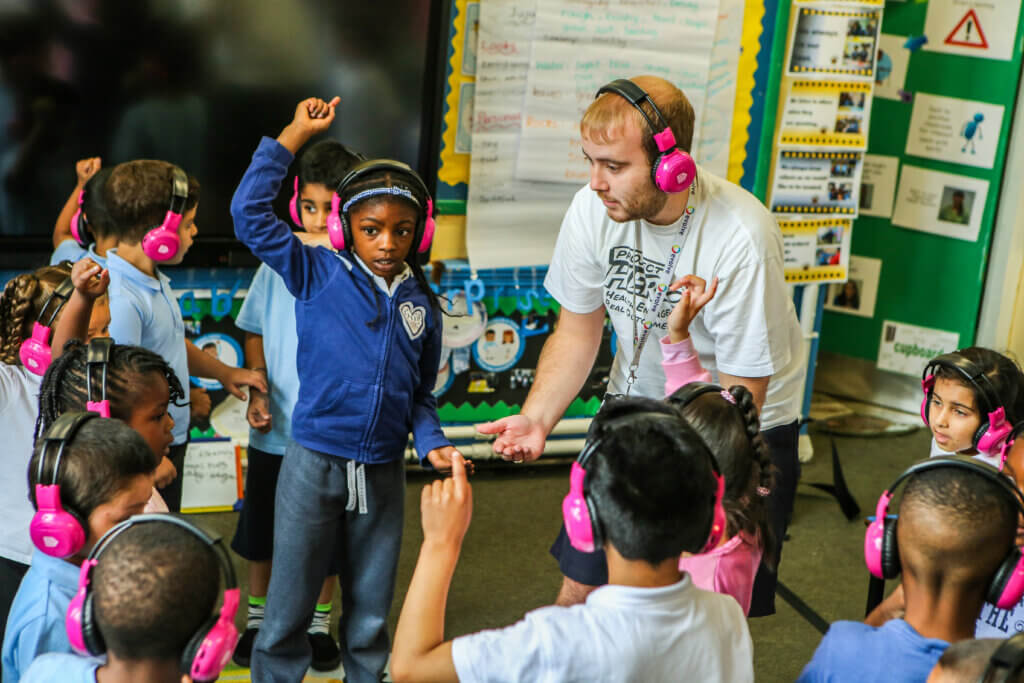
In the afternoon, I often work with students who struggle with self-regulation, particularly those with ASD. To support them, I run sensory circuits – a structured, therapeutic routine designed to help children calm their sensory systems and improve focus.
These circuits include activities like jumping on a space hopper, balancing, throwing and catching and deep breathing exercises, all aimed at helping students feel more grounded and ready to engage in the rest of the school day. For students with ASD, these activities can be a game-changer, providing them with the sensory input they need to self-regulate and reduce feelings of overwhelm.
It’s truly rewarding to see the positive impact these sessions have. By the end of the circuit, the children often appear calmer, more focused, and ready to tackle the rest of their afternoon. This structured break gives them the tools to manage their emotions and behaviour, leading to a more successful day overall.
Fostering creativity through After-school Clubs
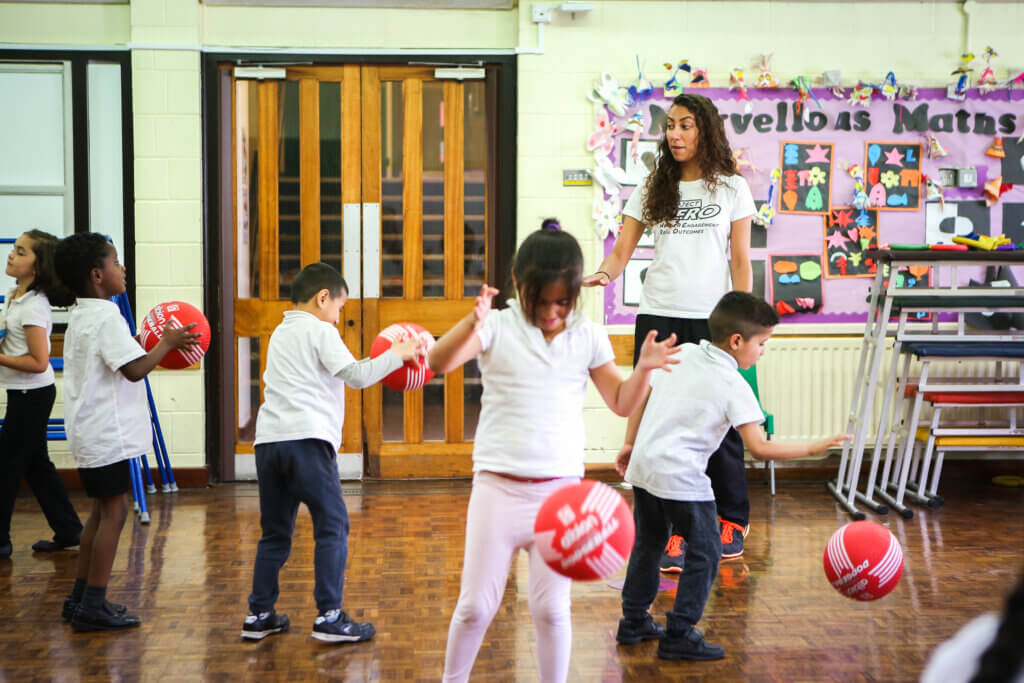
After the school day ends, my work continues with after-school clubs that give students a chance to unwind while developing important life skills. These clubs are all about fostering creativity, sportsmanship and gross motor skills.
Whether it’s a sports club where we practice teamwork, communication and fair play, or a creative arts club where children explore self-expression through drawing, these activities help students build confidence, improve social skills and work collaboratively with their peers.
Running these clubs is a fantastic opportunity to see students in a more relaxed, fun environment, where they can show off their talents and creativity. It’s incredible to witness how participating in these activities helps students learn to handle winning and losing gracefully and gaining a sense of pride in their work.
Reflecting on the bigger picture
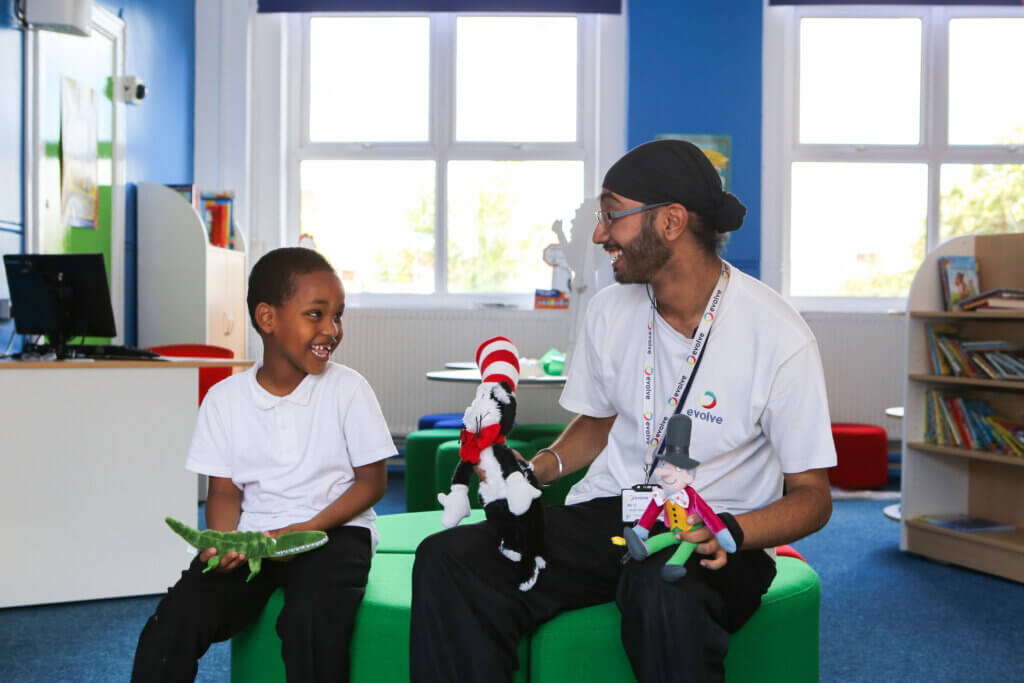
As the school day wraps up, I take a moment to reflect on the work done and the progress made. My role as a health mentor is about much more than just emotional support during the school day – it’s about building a foundation for long-term success.
Emotional health plays a huge role in a child’s ability to succeed, not just in school, but in life. When children can regulate their emotions, manage stress, and engage in positive behaviours, they’re more likely to excel academically, socially and emotionally. By focusing on these skills, I’m helping to set them up for future success.
It’s incredibly rewarding to see the positive changes in students as they develop the tools then need to navigate challenges. Whether it’s through emotional regulation techniques, mindfulness practices, or conflict resolution skills, the benefits are clear. These skills help children not only succeed in school but build resilience and confidence for whatever challenges they may face in the future.
At the end of the day, knowing that I’m playing a part in shaping their emotional wellbeing and preparing them for a bright future is what makes this work so fulfilling.
